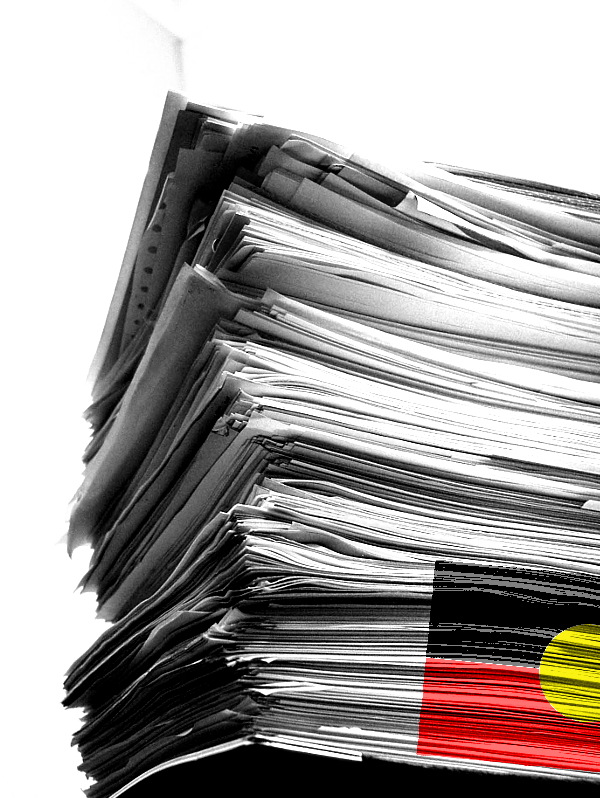CIS seeks Voice context
 A centre-right think-tank has put forth ideas for the Indigenous Voice to parliament.
A centre-right think-tank has put forth ideas for the Indigenous Voice to parliament.
Plans to change the Constitution to recognise Indigenous people are underway, and will require establishing new mechanisms to hear Indigenous voices.
A new analysis by the Centre for Independent Studies (CIS) reviews the context and history of the decision-making process.
It notes that Harvard University research has shown that “when Native nations make their own decisions about what development approaches to take, they consistently out-perform external decision makers on matters as diverse as government form, natural resource management, economic development, health care and social service provision”.
Additionally, the experts say that development in Indigenous communities “requires leaders who introduce new knowledge and experiences, challenge assumptions, and propose change. Such leaders, whether elected, community, or spiritual, convince people that things can be different and inspire them to take action”.
The CIS says Australia needs to ensure pathways are created for external government decision-makers to work with and be informed by the knowledge and experience of Indigenous leaders, and to convince First Nations communities that actions taken in partnership with the government can be effective.
It deems current efforts to adopt such approaches to be “inadequate”.
The think-tank says the Indigenous Voice to parliament needs to represent genuine grassroots views and not be a “black cabinet” for Indigenous elites.
One of the paper’s co-authors, constitutional scholar Greg Craven, is supporting calls for more details about how the Voice will operate.
“By not talking about the legislation in detail, you are forgoing the opportunity to convince people,” Professor Craven said.
The plan is for the final structure and powers of the body to be determined by parliament only after the referendum is passed.
Attorney-General Mark Dreyfus says MPs will have “ample time” to debate the proposed wording for the question to be put to voters. Legislation setting up the referendum has not yet passed parliament.
The Albanese Government also says that details about how the Voice would operate are publicly available, following a co-design process by Aboriginal leaders Tom Calma and Marcia Langton. However, the government has yet to endorse these principles.
Opposition leader Peter Dutton is withholding the Liberal Party’s support for the Yes campaign, demanding details of how the Voice would work in practice ahead of the vote.
Professor Craven says the Voice could be designed in a way that appeases conservative concerns, noting that the Voice had been a “conservative-led proposal” formed under the Morrison government with its genesis in John Howard’s idea to recognise Aboriginal and Torres Strait Islanders in the Constitution.
“It remains with, not against the Constitution,” he said.
“It doesn’t bind parliament to act anyway, it’s not judiciable, it’s not a Bill of Rights. It’s a conversation.
“I see no sign the government is going to come up with anything crazy.”
In Australia, no referendum has passed without bipartisan support.
Professor Craven says Yes support is fairly soft right now, and there are a significant number of undecided voters.
“Quite a lot of people think they can carry it through on the ‘vibe’,” he said.
“But what it shows is that legislation is incredibly important. If people don’t know, they will always vote against it as a matter of caution.”
The CIS paper says the structure of the Voice should be made with a “bottom up” approach, so that conservative and classical liberal voters would be more likely to support it.
“A grassroots megaphone can succeed in helping people on the ground bring about practical change, whereas a black cabinet might further empower the elite of the Aboriginal political class by enabling them to determine what they believe public policy relating to Indigenous affairs should be,” the paper says.
High-profile Indigenous leader Nyunggai Warren Mundine, who is director of the CIS’ Indigenous forum, has some serious issues with his own organisation’s paper.
Mr Mundine - a vocal opponent of the Voice - appears to remain unconvinced about the need for specific Indigenous recognition and empowerment.
“It goes against every role for classic liberalism by changing the constitution. A liberal Constitution treats everyone equally,” Mr Mundine told reporters this week.
“To say Aboriginal people are not in the Constitution is meaningless because we are citizens in this country.
“This is a nation that had a bad beginning like every other nation has a bad beginning, but the important thing is since Federation as a nation the lot of our people has improved.
“If this Constitution is so bad, land rights wouldn’t have happened, native title wouldn’t have happened and they are the biggest economic reforms for Indigenous Australians. We’ve got hundreds of millions of dollars from miners going into trust funds.”
Mr Mundine has previously stated that the idea for an Indigenous Voice to Parliament was “dreamed up by… the elites in academia”.
He says the referendum will have a negative impact.
“We’re going to spend hundreds of millions of dollars on this body sitting in Canberra. Aboriginal organisations are complaining to me now that they aren’t getting money, it is being soaked up by this voice,” Mr Mundine said.
“There are no laws that are discriminatory in Australia now against aboriginal people. Our taxpayers have bent over backwards to help groups of people.
“The problem is Canberra. It is those people who sit in the bureaucracy. Most of the money doesn’t get out where it’s actually needed. And now these people want to be in the Constitution.”








 Print
Print